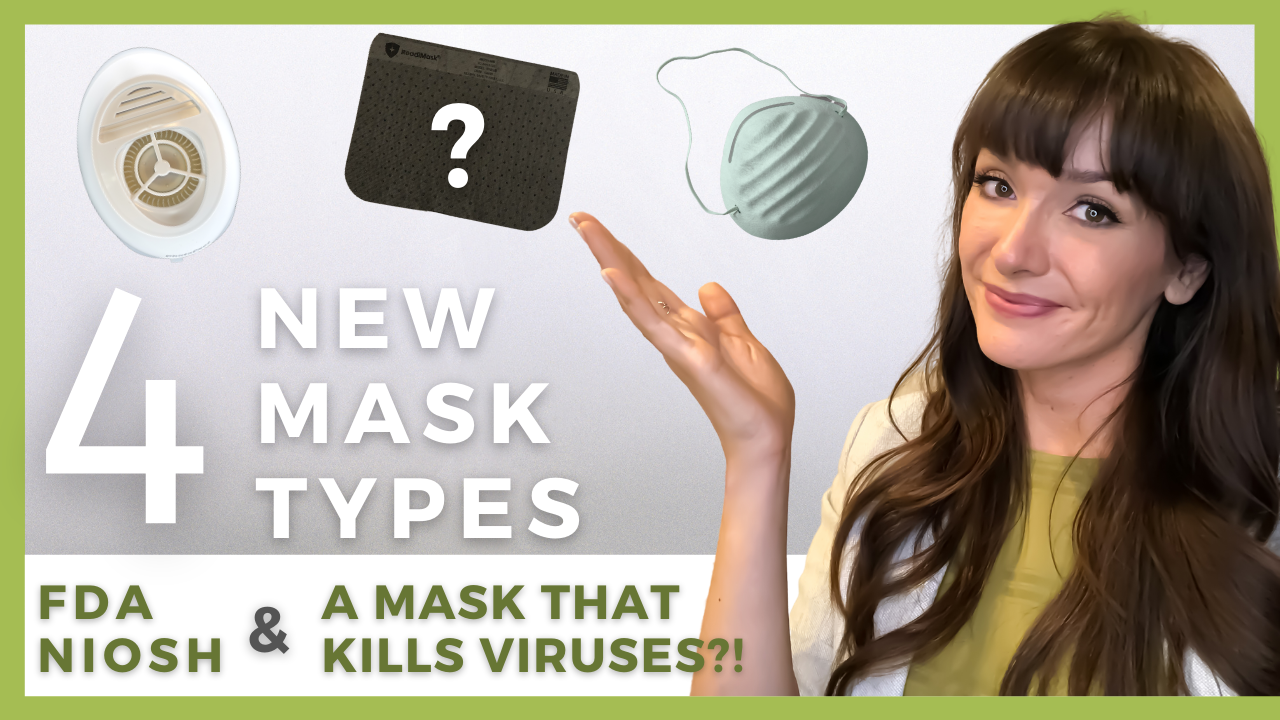Are you thinking about taking the CIH?
Or maybe you've already registered and are wondering what to study before you actually sit for the exam.
Well, this article is all about helping you to make sure you can be successful.
About three weeks ago, I sat for the CIH exam and I passed it.
It was a lot of work and I made some mistakes along the way. I wanted to put these tips out there with the goal of helping one another out and making sure that you don't make some of the same mistakes that I made.
It's hard to carve out the time to study for the exam and it's critical that you make the best use of that time.
The Certified Industrial Hygiene Exam
The Certified Industrial Hygiene Exam is probably the most difficult safety certification there is out there.
Before taking this exam, I have taken the ASP, the OHST and the CSP (currently the CSP is the only one that I maintain). I would say that the CIH is orders of magnitude more difficult than the exams I took before.
So, if you are going to take this exam, you need to be prepared that it's going to be a lot more difficult than those that you take through the Board of Certified Safety Professionals.
About 600 people will sit for the CIH exam every year and less than 50% of those people are going to pass it. This test is no joke.
After I passed the CIH exam, I wrote a note on LinkedIn asking if anybody else was considering the exam and if they thought a video of tips would be helpful.
Although relatively few people take the exam, there seemed to be some interest so that's why I wrote this post and filmed a quick video talking about my tips.
7 Tips to Help You Pass the CIH Exam

#1 - Take a Good Test Prep Course
Tip number one probably isn't going to surprise you because it's pretty obvious that it would help to take a test prep course - but make sure you take a good one.
I took a test prep course in 2013, which was seven years ago. Then I got too busy working to stop and take these tests.
So I thought, okay, there's no way I'm going to have time to take a test prep course with how busy work has been. So I'm going to use the materials from that previous course to study for the CIH. But that didn't work out.
My CIH Prep course materials were two enormous binders that contained the equivalent of 2-3 college semesters stuffed into powerpoint slides.
This approach doesn't work.
You need test prep that's really focused on the material that's actually on the test, not on just teaching you industrial hygiene basics - but what specifically is on the exam.
I tried studying this material for about a month before I realized it was too broad to be helpful.
Luckily, my friend gave me her study materials from a few years ago when she passed the exam and in the box of study guides, notecards, and books, was the Bowen EHS CIH Prep Binder from the course she took.
Although I didn't actually take the course, this binder was key in me passing the exam because it broke the information down, made it easy to study and easy to put into practice on the practice tests.
The people that I have talked to who took the Bowen CIH course said that it was really helpful. Also, I think this is a company that guarantees a pass. So if you don't pass the first time, you can take that course again for free.
I would definitely recommend taking a course from them if you're going to take it from anybody - and just so you know, this content isn't sponsored so I'm not getting any money by promoting this course. It's just my opinion.

#2 - Get the AIHA Brown Book

In the prep course that I took, they recommended going out and buying this book to study for the exam. I didn't buy it because it's expensive - and luckily I got it from a friend. However, I have to say, it's one that's worth it.
It covers each topic in small enough chunks that you can learn the basics pretty quickly.
I read every chapter and made sure that I understood it. The book has these really good bulleted lists in the back of every chapter with one-liner facts that you need to know. I took each of those one-liners and I made a note card out of them and I studied those note cards.
That was extremely helpful because a lot of it is pretty closely pertaining to what's on the exam.
So although this book is expensive - it was a big part of me passing the exam. I would say just a good industrial hygiene book to have as a reference for the future as well.

#3 - Use a Study Software Program
Next up, get a study software program. DataChem Software is the one that everybody I know has used. It's been out there for years. It's tried and true. I think Bowen EHS also has one and there's a couple more that are coming out on the market.
DataChem is the one that I did. I went through all 2,800 questions or whatever there is in the whole period of me studying. I have sort of a love-hate relationship with DataChem, because the questions were really difficult and I felt like they asked a lot of trick questions and sometimes maybe they got a little bit too deeply into the weeds compared to what was actually on the exam.
That being said, it did do a good job of prepping me for the exam. I felt like the exam was easier than the DataChem questions and I made fewer mistakes because the software taught me to read each question really carefully.
I've heard that the Bowen Prep Software is good and is somewhat easier than DataChem so some people may prefer it. I think DataChem was a solid choice for me and I don't know if I would have passed without them.

#4 - Re-Learn Basic Science, Chemistry, Calculations
Next up, make sure you take time to get really comfortable with science and basic calculations again. This will turn up on the exam over and over and it's also what you need to answer questions outside of that specific category too.
One of the mistakes I made was if I was going through a practice session at home, a lot of times I would skip equations to study them on the weekend or when I had more time.
That didn't work out very well.
Eventually what I had to do is, halfway through studying, I had to stop everything, go back, made sure I really understood basic science, stoichiometry, organic chemistry - and all that all over again.
Having a good background in these areas is a significant portion of the exam and you'll really want to feel confident in those areas.

#5 - Become a Ventilation Expert
I'll be honest with you, in my career, I've very rarely used ventilation knowledge. The most I've done is testing the flow through paint booths and local exhaust ventilation systems.
However, you need to know ventilation inside and out.
I avoided this section for longer than I should have because I found it boring. But once I started doing the equations it ended up being one of my favorites.
You need to do a lot of practice questions. The ones on the exam weren't terribly difficult in my opinion, but you want to be able to make sure that you're really confident in answering those because it's a big portion of the exam.
In addition, the one-liners in the back of the AIHA book will help you learn some of the basic principles that come in very handy.

#6 - Take Time to Understand Ionizing and Non-Ionizing Radiation
A big mistake I think a lot of people make is that we all expect toxicology and air sampling/instrumentation to be a big part of the exam - which they are. But ventilation and radiation are also big components and sometimes people underestimate them.
Now for me, these topics were confusing because the difference between non-ionizing and ionizing wasn't really laid out really clearly in any of the study materials that I found.
I found that I was doing poorly on this part of the practice tests and if you combine both non-ionizing and ionizing radiation sections, they make up a significant portion of the test.
You need to know these sections as well as toxicology, IH sampling, and ventilation.
What I ended up doing is I drew and colored cheat sheets for myself to study. Something about making it visual helped me to make sense of it. That was the only way that I could really learn and process the information in my head. I think it's because I'm a visual learner, but that was really key in me gaining good enough understanding that I was passing those sections on the practice exam.
Figure out how to simplify those sections for yourself and devote some time to making sure you genuinely understand them.

#7 - Give Yourself LOTS of Time to Study
This may seem obvious, but it's probably one of the bigger pitfalls.
This test covers a huge range of material. So much so that I found it really frustrating at times.
For me, I studied about two and a half months and I didn't feel that was enough. Luckily, I passed, but I wasn't doing as well on the practice exams going into it as I had wanted to and I felt like I underestimated the amount of time I needed.
In talking to people on LinkedIn before making this video, three mentioned they had been within one question of passing and had failed.
That would be so disappointing.
We all know how hard it is to set aside enough time to study in the first place, and many people who fail have a really hard time finding the time to study and take the exam again.
I thought that 2.5 months would be plenty of time and it was almost not enough.
Give yourself three to four months if you feel pretty confident overall with industrial hygiene going into the test.
If you don't have a strong background in industrial hygiene, then you probably want to start even earlier, like six months before you take the exam.
I personally was hesitant to devote as much time to studying as I needed to. I didn't have that much free time because work was so busy. However, once I realized how hard the test was going to be, I was definitely devoting as much time as I could.
If I was in the car, I was doing note cards. In between meetings if I had five minutes , I was doing note cards. My evenings and weekends were devoted to passing.
It was a brutal time of studying and I was so ready for it to be over.
I wouldn't recommend having as little time as I had because I wasn't confident I was going to pass. I had to stop everything else and prioritize the CIH. One week before the exam, I was still not in the 70% region on my practice tests. So I had to really cram.
I ended up making the processes much more stressful to try to crunch it all into a few months.
Good Luck on the CIH Exam
So those are my tips to help you pass the CIH exam.
I would definitely say that I appreciated the experience of studying. I wouldn't say I enjoyed it.
But it was good because it reminded me of a lot of things I had forgotten. I feel more confident about my level of IH knowledge than I did before.
The CIH prepares you to take that next step in your career.
I hope this article helps you pass. If you have any additional tips for others, please comment below.
Good luck on the CIH Exam!



1 comment
Bill Pockels
Thank you very much for putting out the information about CIH Exam study. There can never be too may people offering advice about this very difficult exam. The only exam I can think of that might be tougher would be the one for the Certified Health Physicist (CHP). If you have time you should join the American Industrial Hygiene Association (AIHA) at https://www.aiha.org/membership/join-aiha.
Leave a comment
All comments are moderated before being published.
This site is protected by hCaptcha and the hCaptcha Privacy Policy and Terms of Service apply.